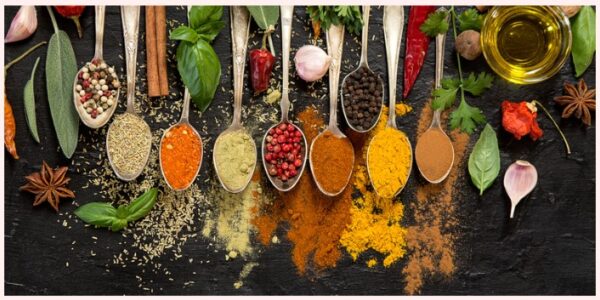
By Sarah Schuette, Meals on Wheels Nutrition Program Assistant, Reviewed by Krystal Sharpnack, RD
With all of the technology we see in healthcare today, it is easy to forget that many of our medicines come from plants. Herbal medicine in particular uses plants as powerful tools for healing
the body.
Herbal supplements are pills, liquids, teas, lotions, or other products that contain plants with healing properties. Common supplements include garlic, green tea, and St. John’s wort. Garlic has the potential to reduce cholesterol levels, green tea may reduce the risk of heart disease and cancer, and St. John’s wort may prevent depression symptoms. Less common supplements include feverfew, which may help with headaches, goldenseal, which may prevent or reduce cold and flu symptoms, and hawthorn, which may improve one’s heart health by lowering blood pressure.
Like all medicine, there are a few things to consider before adding herbal medicine to your healthcare routine. First, there is not enough research on herbal supplements to guarantee they will have a helpful effect. With that being said, herbal medicines have been around for years, and may be preferred as a natural alternative to western medicine. Secondly, herbal supplements are not regulated by the U.S. Food and Drug Administration (FDA), so the quality and safety of some supplements cannot be promised. However, there are ways to make sure you are getting the highest quality supplements available. Before buying a new supplement, look for nationally-known brands, check for certifications by the Natural Science Foundation (NSF), Underwriters Laboratories (UL), or U.S. Pharmacopeia (USP), read the product labels and ingredient lists, and visit the company websites. Finally, some products such as St. John’s wort can be dangerous when taken at the same time as other medicines. To make sure you are safe and satisfied using a new herbal supplement, it is important to speak to your doctor before adding it to your healthcare routine.
Herbal supplements may not be guaranteed to have a positive effect, but herbs used in cooking almost always have health benefits due to the ease at which our bodies absorb and use the nutrients from whole foods. Culinary herbs such as thyme, rosemary, parsley, and coriander can reduce oxidative stress on the body with antioxidants, support the good bacteria in your gut, and reduce inflammation. Many also contain vitamins C, A, and K, which are key parts of a healthy diet. Vitamin C is an antioxidant and strengthens the immune system, vitamin A is important for eye health, and vitamin K helps with bone health and blood clotting after injuries.
At your next meal, try adding extra herbs for a boost in flavor and health! Listed below are tasty herb and MOW meal pairings you could try.
Parsley – Grilled Chicken Parmesan Cilantro – Southwest Chicken Bowl
Basil – Minestrone Soup Chives – 3 Bean Chili
